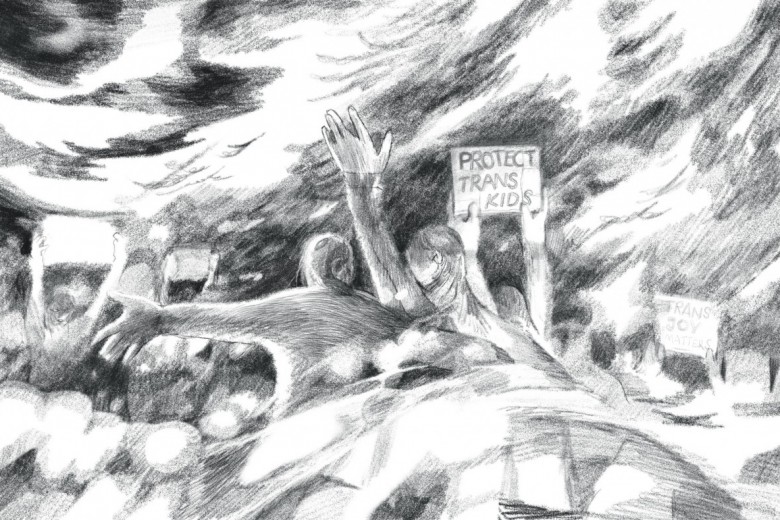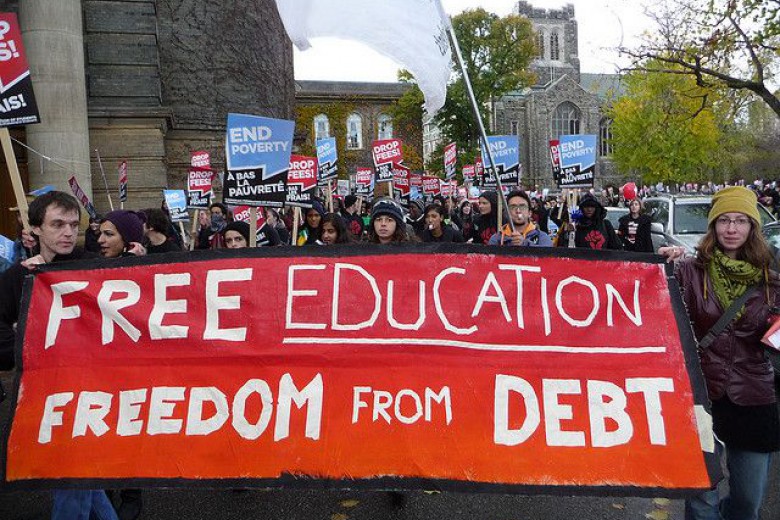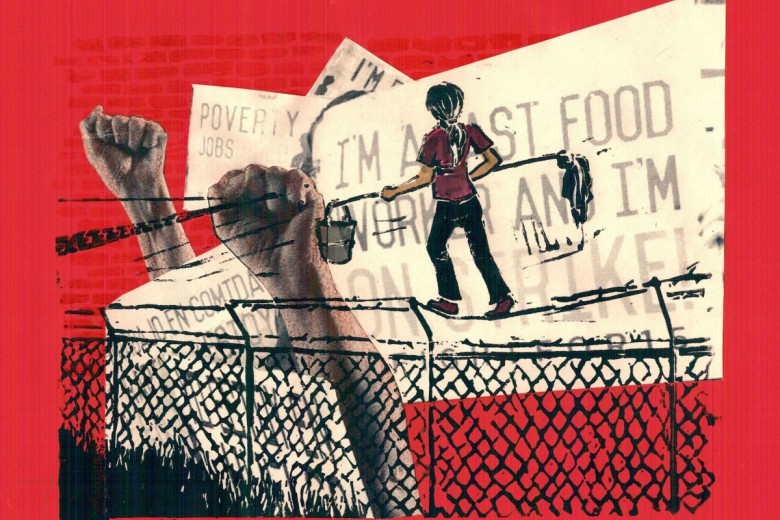
In the name of education, British Columbia has spent at least half a million dollars teaching wee ones the awesomeness of the Olympics. In response, Olympics opponents are trying to counteract what they call “pro-Olympic propaganda” by introducing classroom workshops of their own.
The $500,000 Sharing the Dream program provides every school in the province with an Olympics “teachable moments” DVD that includes videos, podcasts, teacher guides, hyperlinks and brochures for teachers to use in their classes — all designed to build excitement about the Games.
“Olympic and Paralympic themes span across all courses in the B.C. school curriculum — from language arts to science, physical education to mathematics, social studies to fine arts, technology to career planning” reads the Sharing the Dream website. “We urge you to embrace these educational opportunities and bring the excitement of the Games to your classroom.”
Olympics opponents dismiss the Sharing the Dream program as a brainwashing tool. “It is a blatant propaganda effort to bolster support for the Games” says anti-Olympic activist and author of Five Ring Circus: Myths and Realities of the Olympic Games, Chris Shaw. “The same government is cutting off school sports programs.”
The Sharing the Dream program was launched in the wake of massive budget cuts to public education. These same cuts are affecting public school maintenance, staffing, CommunityLINK (a program that supports students in low-income communities), Parent Advisory Council funding and, ironically, $130,000 worth of provincial grants for competitive sports.
Anti-Olympics organizers aren’t short on reasons for opposing the Games. According to Shaw, founder of the watchdog group 2010watch, the Olympics are an assault on the poor, the environment and the public purse. Detractors also point out that the Games are being held on unceded Native land (B.C. territory that was never signed over to European settlers) over the objections of local Native groups.
In response to the Share the Dream program, Shaw and other activists are doing a little educating of their own. In August, the Olympic Resistance Network introduced Teach2010, a workshop geared to elementary and high school students, which aims to restore some balance to the Olympics debate.
The goal of Teach2010 is to provide teachers with resources to do something revolutionary: provide some critical perspectives on a complex and relevant issue.
Unlike Sharing the Dream’s well-funded program, Teach2010 has a budget of just $3,000 (all donated), and relies on a great deal of volunteer labour. Through Teach2010, organizers conduct workshops that teach educators about the issues surrounding the Olympics. They also host youth nights where kids do activities like silkscreening T-shirts. “It’s an opportunity for youth to get informed about the issues” says organizer Marla Renn. “It gives participants the ability to respond through their creative expression.”
For Teach2010’s high school workshops, Renn, a schoolteacher, takes her small team into classrooms to facilitate discussions about the Olympics. “We begin to look at the issues surrounding the Olympics and then we step away and look at whether those things translate into reality” she says. “What are the real impacts of the Olympics? If you had an opportunity to participate in the decision-making process, what would you spend $6 billion of public money on?” Students have suggested building hospitals and community centres, or housing everyone on Vancouver’s Downtown Eastside without a home. They’ve even discussed buying an ice cream for everyone in the city.
Renn and the students discuss environmental impacts and dissect organizers’ claims that this will be the “greenest Games ever.” They talk about the motivations of stakeholders like the Vancouver Organizing Committee (VANOC), as well as sponsors and the mainstream news media.
It’s not entirely surprising that the Olympic resistance’s move into the classroom has itself been met with resistance.
Myriam Dumont, an elementary school teacher in Vancouver’s Downtown Eastside, tried to organize a Teach2010 workshop for teachers at her school in October 2009 to give them ideas for a balanced lesson about the Olympics.
The issue exploded when the Vancouver Sun reported that the Vancouver Elementary School Teachers Association (VESTA) was promoting a Teach2010 workshop. The association had simply put a link on their website to inform teachers that the workshop was taking place.
The Sun article caused a minor media frenzy, and a couple of days later, Sun columnist Cam Cole wrote a piece called “It’s elementary, my dear children: The Olympics are a sham” in which he sarcastically attacks the Olympic Resistance Network and VESTA, accusing both parties of crushing children’s hopes and dreams.
“Nip those dreams in the bud, I say” writes Cole. “Get ‘em early. That’s the kind of preventive action that makes us all proud to pay your salaries.”
VESTA quickly distanced itself from the event, removing the informational link on its website and replacing it with a disclaimer. The media attention resulted in the cancellation of Dumont’s workshop and her holding it off school property.
“I saw it as an opportunity for teachers to get kids to start thinking about issues and what they can do, how it affects them, and taking action.” She says discussions about the Olympics are especially important in an inner-city Vancouver school, where pro-Olympic propaganda is everywhere.






